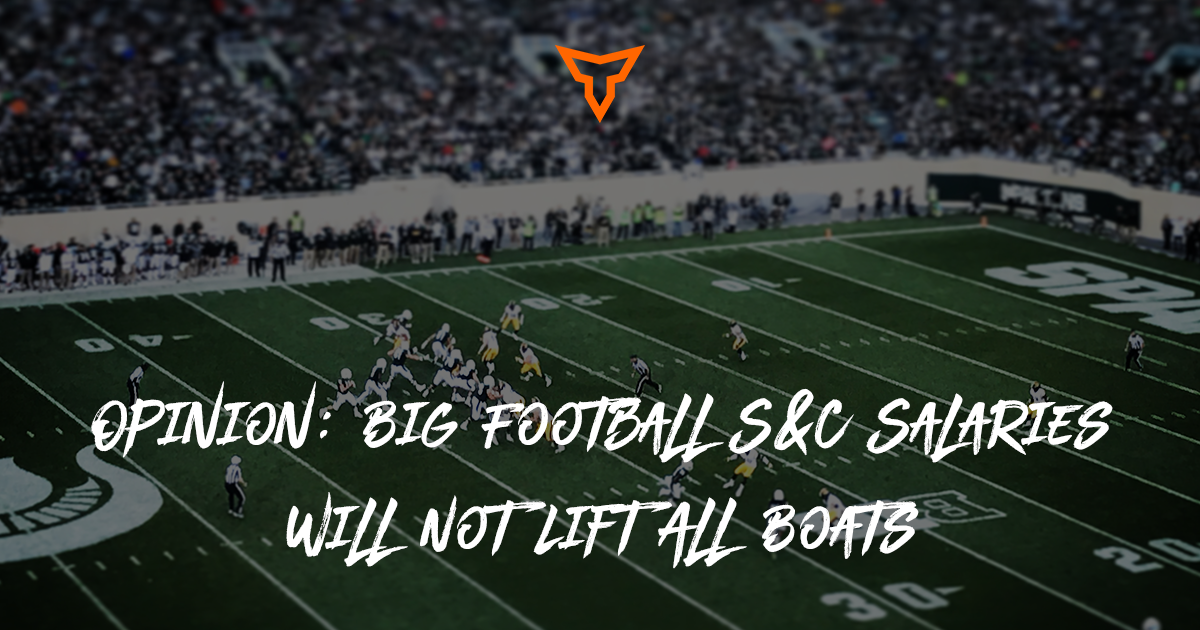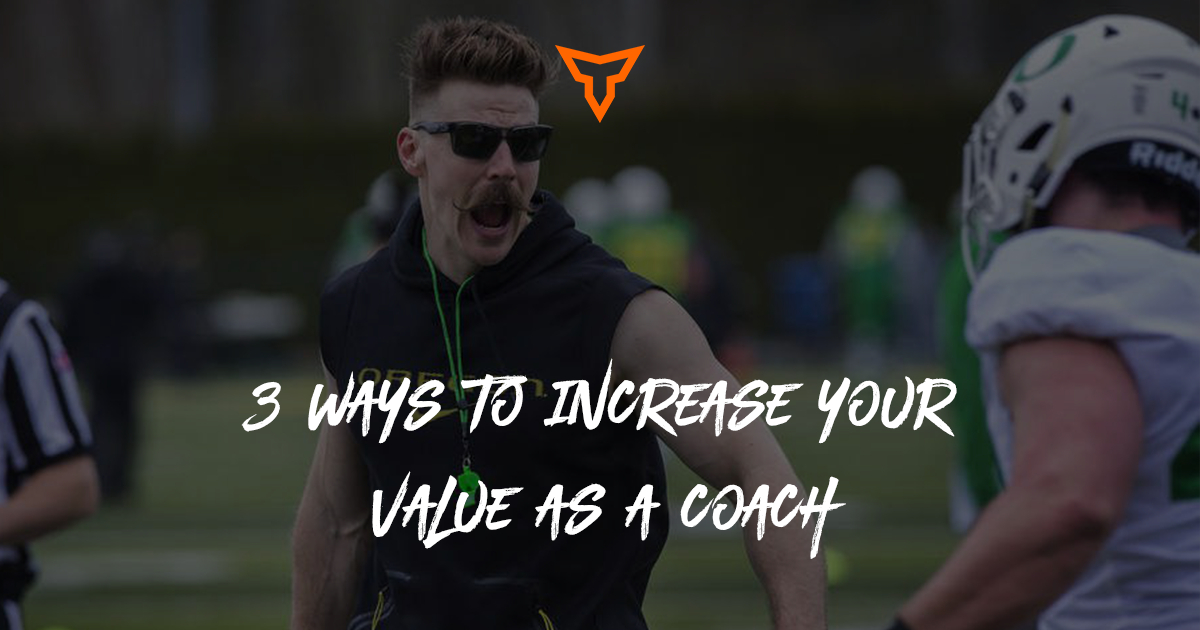If you haven't noticed lately, there's some strength coaches out there that are making a fantastic salary. As someone that has been employed full-time as a strength coach for over 15 years, I’m happy that there are institutions that are recognizing what our profession does for the student-athlete experience and are compensating people for their education and experience. There's a couple things that the top earners have in common: all head football strength coaches, are employed by BCS institutions, and they are another part of the Division 1 arms race. Don't get me wrong I'm excited that people are making a good living in the same profession that I am in. However, in my mind, this is just another example of The Haves and Have Nots.
There's been a big discussion lately about whether or not the amount that these strength coaches are getting paid is going to “lift” up the profession and make a positive impact on the earnings that the majority of college strength coaches make. As much as I dread making the statement, having the increase in college strength and conditioning coach salaries at these top paying schools will probably have little or no effect the rest of us.
When I first started in this field it was a luxury to have a strength coach on staff, not just at Division 3 institutions like mine, but also at the Division 2 level. Before we get on a tangent about a school where one of the assistant football or track coach also doubled as a strength coach, let me clarify I'm talking about a true full-time position. A position that’s sole responsibility is to develop athletes. That was considered a luxury because that level of dedication is something a part-time coach really can't do. They might have the best of intentions to help out all the athletes in their care, but something has to give. There is only so much time a coach can spend in the weightroom when they are in the middle of their season, or recruiting, or simply trying to have some time outside of work.
Like I was saying, having a full-time strength coach on staff used to be a luxury bring something that universities are doing just to keep up. But in our conference, the Wisconsin Intercollegiate Athletic Conference we still don't have a full-time strength coach at every member Institution. Out of the conference teams that support football only four of us have a full-time strength coach on staff. Not saying that the other schools don't have some sort of support, but I’m talking about full-time positions like the ones referenced in the USA Today article. The funny thing is, currently in our profession we are talking about how to improve strength trainer salary positions but in the State of Wisconsin System we don’t have a unified way to classify our positions as strength coaches.
It took me some time to wrap my head around this so here is a comparison. If you are an entrance level athletic trainer you are recognized by the state’s Human Resource department as an Athletic Trainer I and has a compensation package associated with that position. The more experience and the more recognition you have then you get a new title as Athletic Trainer II through IV. Each step up has a higher strength and conditioning salary range and other benefits. Compare that to the strength coaches in our conference and we are classified all over the board. My position is viewed by Human Resources as an Assistant Coach while others are classified as a recreation specialist. Do you see the issue? Without being recognized by the UW system, each one of the four positions are doing the same job, but are operating and being compensated at different rates. So does having these top paid positions really lift up the strength and conditioning coach pay range of all other coaches? I don’t think so.
There is something that IS happening that might have a chance though. The National Strength Coaches Association has been making strides to have the profession recognized as the professionals we are. With luck, this means having a model similar to athletic trainers and have a way to be justly compensated for the education and experience we have as professionals. Maybe it’s just me, but seeing an open position being advertised requiring a 4 year degree with a Masters Preferred and certification with a national governing body like the NSCA or CSCCa it had better be paying a competitive, not a just livable, rate.
I hear the counter arguments coming. For all of you who say “If you want to get paid the big bucks, then you have to chase the big jobs.” Let me make one statement: Being a strength coach is very different than being a football, or any other sport coach. It takes much more time to develop a sound strength and conditioning program, than a sports team. Remember those laws of adaptation we were taught in school. Those ideas don’t simply go away just because “we have to win this year” or any of the other pressure sport coaches get. There is something to be said about being at a place for long enough of a time to establish your program and to develop a culture around it instead of chasing the next big job.
If you are just getting into this field or a grizzled veteran, like me, there are things that we can all do to help increase our perceived value. First talk about your education. If you’re like me, I’ve invested at over 6 years of formal education to hold the position I have. Be proud of it! Show off your diplomas and degrees, make sure they are mentioned in your bio, and make sure your Human Resources department know about them. Second is to get involved with your preferred professional organization. Whatever group you’ve decided to get involved with, reach out and get involved in whatever capacity you are able to. It might be something as simple as showing off your certifications to volunteering to be a part of their committees. If there’s one thing I’ve learned over the years is that organizations, like your school, tend to like and reward employees who take active roles in their profession organization, like the NSCA or CSCCa. Lastly, show up to campus or community events without looking, or smelling, like you were working out in the gym. I’m not saying you need to wear a full suit to go to a basketball game or choir concert but if you want to be viewed as a professional then you have to look presentable when you’re outside of the gym.
Changing the way our field is viewed is something that is not going to happen overnight. Especially in a time where the media tends to latch on and over dramatize the actions of a few strength coaches have done while in the spotlight of a nationally televised football game. Being over the top trying to motivate players is something that I’ve done in the relative camera-free safety of the gym, because I know that the group of people that ultimately sign my paycheck, or contract, don’t necessarily understand the fine line between motivating an athlete and looking like a… well, I’ll let you fill in the blank. Ultimately, what is really going to lift our field is the simple everyday interactions we encounter every day.
Subscribe to our blog
Subscribe to receive the latest blog posts to your inbox every week.
Related posts

Opinion: Big Football S&C Salaries Will Not Lift All Boats

How Strength Coaches Can Stand Out in a Crowded Market
.jpg)

